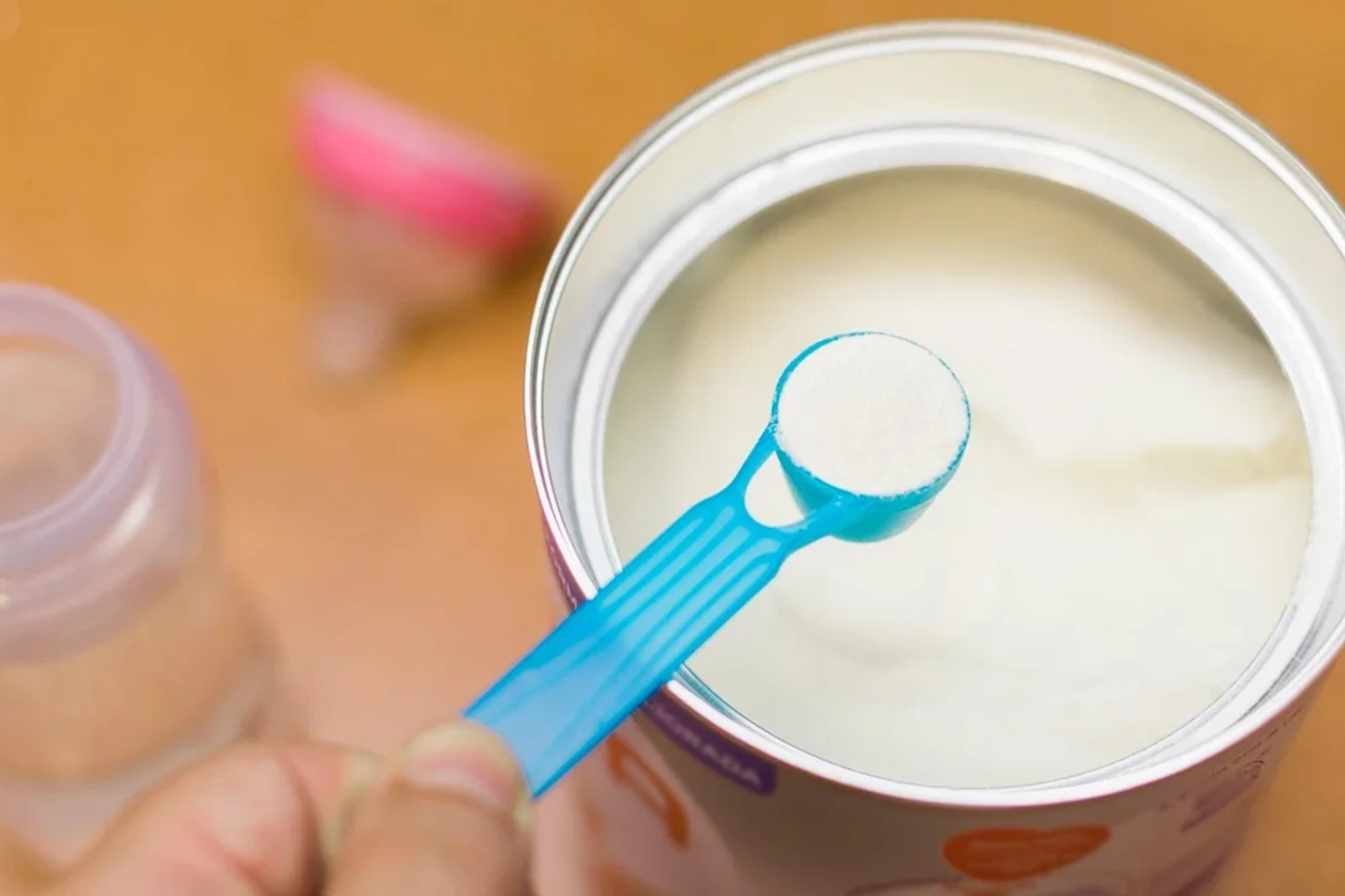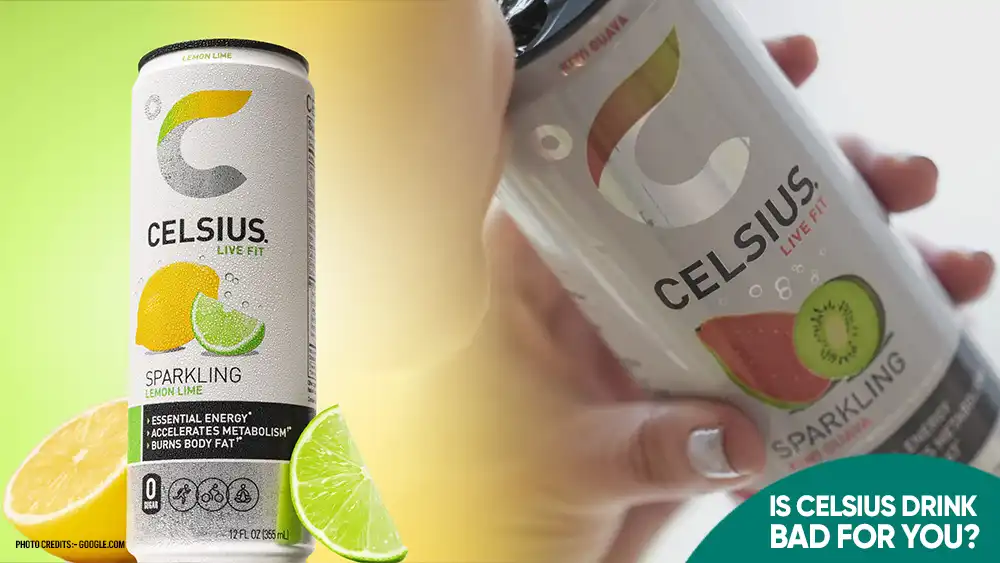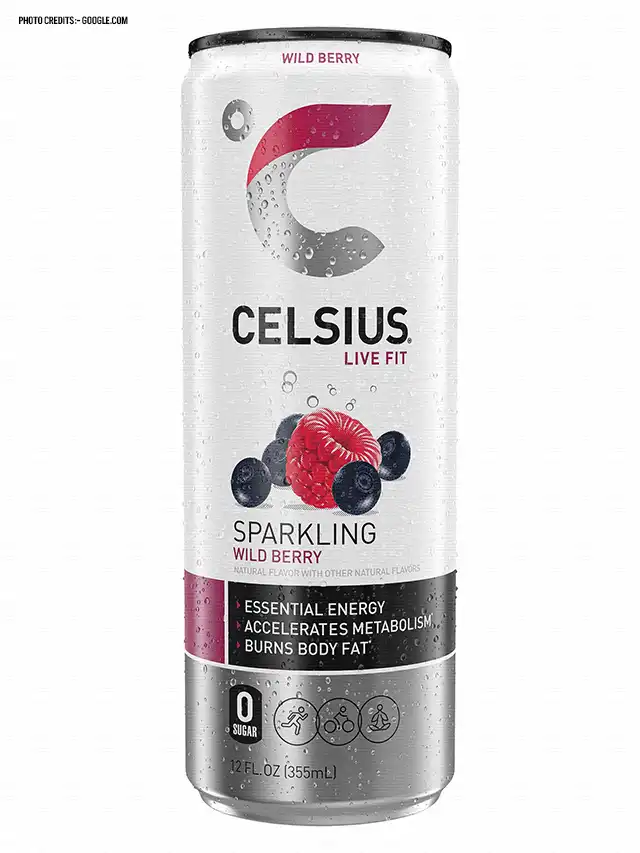
HEALTH BLOG
Is Celsius Drink Bad for You? Its Impact on Health
-
Rahul Priydarss
Delve into its ingredients, benefits, and possible drawbacks. Is Celsius Drink Bad for You? Discover if this energy drink supports or hinders your health goals. Our detailed examination includes caffeine levels, potential side effects, and user feedback. Learn whether Celsius Drink fits into your nutritional and lifestyle choices. Make an educated decision about incorporating Celsius Energy Drink into your routine. Explore its impact on metabolism, energy levels, and overall well-being. Find out if Celsius is the right choice for your dietary needs. Uncover the truth about Celsius Drink.
Introduction of Is Celsius Drink Bad for You?:
In an era where energy drinks promise instant vitality and heightened performance, Celsius has emerged as a standout contender. Marketed as more than just a quick energy fix, Celsius positions itself as a fitness drink designed to boost metabolism, burn fat, and sustain energy levels without the notorious crash of traditional energy beverages. This raises a critical question: Is Celsius drink truly beneficial for your health, or does it conceal potential risks beneath its health-conscious facade? Celsius Energy Drink contains 0 grams of sugar per can. This makes it a popular choice for those looking to avoid added sugars and maintain a lower calorie intake. Instead of sugar, Celsius uses sucralose, a zero-calorie artificial sweetener, to provide sweetness without increasing the drink’s calorie content.
Amidst endorsements from athletes and a growing consumer base, the ingredients, claims, and scientific backing of Celsius warrant closer examination. This blog post delves into the composition of Celsius drink, its touted benefits, potential side effects, relevant scientific research, and public sentiment. By exploring these facets, we aim to unravel whether Celsius drink lives up to its health claims or poses hidden dangers to those who consume it.
What is Celsius Drink?:
Celsius is a brand of energy drinks that has carved a niche for itself by marketing its products as healthy, fitness-oriented alternatives to traditional energy drinks. Launched in 2005, Celsius differentiates itself with a unique formulation designed to accelerate metabolism, burn body fat, and provide sustained energy without the crash commonly associated with other energy drinks. The brand offers various product lines, including Celsius Originals, Celsius Heat, Celsius BCAA+Energy, and Celsius Stevia, each targeting different aspects of fitness and energy requirements.
The marketing strategy of Celsius emphasizes its natural ingredients, lack of artificial preservatives and flavors, and its suitability for a health-conscious audience. With endorsements from athletes and fitness enthusiasts, Celsius has gained a loyal following. But does the product live up to its promises, or are there potential health concerns that consumers should be aware of?

Table of Contents
Origin and History of Celsius Drink:
Celsius drink has an interesting origin and history, shaped by its founder’s vision and the evolution of consumer preferences towards healthier beverage options.
Founding and Early Years: Celsius Holdings, Inc. was founded in 2004 by Greg Horn. Greg Horn, an experienced entrepreneur with a background in health and nutrition, envisioned creating a drink that could provide energy and support weight loss through natural ingredients. This vision led to the development of Celsius drink, which was formulated to leverage thermogenesis—using natural substances to boost metabolism and burn calories.
Launch and Product Development: Celsius drink was officially launched with a focus on promoting its ability to enhance energy levels and aid in weight management. The initial formulations included ingredients like green tea extract, guarana extract, ginger root, and vitamins such as vitamin C and B vitamins. These ingredients were selected for their potential to support metabolic functions and overall health.
Market Reception and Growth: Upon its introduction, Celsius gained popularity within the fitness community for its unique positioning as a healthier alternative to traditional energy drinks. It appealed to consumers looking for beverages that could provide energy for workouts without the excessive sugar and artificial ingredients often found in other drinks.
Expansion and Innovation: Over the years, Celsius has expanded its product line to include a variety of flavors and formulations tailored to different consumer preferences and health goals. The company has continued to innovate, introducing new ingredients and improving formulations based on scientific research and consumer feedback.
Market Presence and Recognition: Today, Celsius drink is widely recognized in the health and fitness beverage market. It is available in numerous retail outlets and online platforms, supported by endorsements from athletes and fitness enthusiasts who appreciate its functional benefits.
Ingredients of Celsius Drink:
Celsius Energy Drink contains a variety of ingredients designed to boost energy, metabolism, and overall health. Here are the key ingredients.
Green Tea Extract: Rich in antioxidants and believed to boost metabolism and enhance fat burning.
Guarana Seed Extract: A natural source of caffeine, which can enhance energy levels and mental alertness.
Ginger Root Extract: Known for its digestive benefits and potential to reduce inflammation.
Caffeine: Each can of Celsius contains 200 milligrams of caffeine, which provides a significant energy boost.
B Vitamins: Essential for energy production and overall health. Celsius typically includes B2 (Riboflavin), B3 (Niacin), B5 (Pantothenic Acid), B6 (Pyridoxine), and B12 (Cobalamin).
Vitamin C: An antioxidant that supports the immune system and overall health.
Chromium: A mineral that helps regulate blood sugar levels and supports metabolism.
Taurine: An amino acid that supports cardiovascular health and helps improve exercise performance.
Glucuronolactone: A naturally occurring substance that may enhance mental performance and reduce fatigue.
Natural Flavors: Used to enhance the taste of the drink without adding artificial ingredients.
Carbonated Water: Provides the fizziness commonly found in soft drinks and energy drinks.
Sucralose: A zero-calorie artificial sweetener used to add sweetness without increasing calorie content.
Here is a table listing the ingredients and their quantities found in a typical can of Celsius Energy Drink:
| Ingredient | Quantity per Serving (355 ml / 12 fl oz) |
|---|---|
| Green Tea Extract | 181 mg |
| Guarana Seed Extract | 56 mg |
| Ginger Root Extract | 37 mg |
| Caffeine | 200 mg |
| Taurine | 1000 mg |
| Glucuronolactone | 50 mg |
| Vitamin C (Ascorbic Acid) | 60 mg (67% DV*) |
| Vitamin B2 (Riboflavin) | 1.7 mg (131% DV*) |
| Vitamin B3 (Niacin) | 20 mg (125% DV*) |
| Vitamin B5 (Pantothenic Acid) | 10 mg (200% DV*) |
| Vitamin B6 (Pyridoxine) | 2 mg (118% DV*) |
| Vitamin B12 (Cobalamin) | 6 mcg (250% DV*) |
| Chromium | 50 mcg (143% DV*) |
| Carbonated Water | Not specified |
| Sucralose | Not specified |
| Natural Flavors | Not specified |
*DV: Daily Value based on a 2,000-calorie diet.
Health Benefits of Celsius Drink:
Celsius drink has garnered attention for its array of purported health benefits, appealing particularly to individuals seeking a blend of energy enhancement and metabolic support. Here are some of the key advantages associated with consuming Celsius:
1. Energy Boost: Celsius contains approximately 200 mg of caffeine per serving, a stimulant known for its ability to enhance alertness and combat fatigue. This energy boost can be especially beneficial before workouts or during periods of increased mental or physical exertion.
2. Metabolism Support: Central to Celsius’s appeal is its claim to support metabolism through a combination of ingredients like green tea extract, guarana, and caffeine. These components are believed to increase the body’s metabolic rate, potentially aiding in weight management efforts.
3. Improved Physical Performance: Ingredients such as taurine and glucuronolactone are included in Celsius to enhance physical performance. These substances may help reduce fatigue, improve endurance, and support overall athletic performance, making Celsius a popular choice among fitness enthusiasts.
4. Antioxidant Properties: Green tea extract and other antioxidants present in Celsius provide additional health benefits by combating oxidative stress. Antioxidants help neutralize free radicals in the body, potentially reducing the risk of chronic diseases and supporting overall immune function.
5. No Artificial Additives: Unlike many conventional energy drinks that contain artificial flavors, colors, and preservatives, Celsius prides itself on using natural ingredients. This makes it a preferable option for individuals who prioritize clean and natural products in their diet.
6. Sugar-Free Formulation: Celsius drink is formulated without added sugars, addressing concerns over excessive sugar intake associated with many other energy drinks. This makes it a suitable choice for those monitoring their sugar consumption while still seeking an energy boost.
7. Enhanced Focus and Mental Clarity: The caffeine content in Celsius not only enhances physical energy but also promotes mental alertness and focus. This can be beneficial for tasks requiring concentration and cognitive performance.
8. Variety of Formulations: Celsius offers a range of product lines tailored to different preferences and needs. Whether it’s the Originals, Heat, or BCAA+Energy variants, each formulation caters to specific fitness goals, ensuring there’s an option suited to individual lifestyles and preferences.
Side Effects of Celsius Drink:
While Celsius drink offers several potential health benefits, it’s essential to be aware of the possible side effects associated with its consumption. Here are some concerns to consider.
1. Caffeine Overload: Each can of Celsius contains about 200 mg of caffeine, which is equivalent to approximately two cups of coffee. While moderate caffeine intake can enhance alertness and performance, excessive consumption can lead to:
- Jitters and Nervousness: High caffeine levels may cause feelings of restlessness, nervousness, or anxiety.
- Insomnia: Consuming Celsius, especially later in the day, can disrupt sleep patterns and lead to difficulty falling asleep.
- Increased Heart Rate and Blood Pressure: Caffeine can temporarily raise heart rate and blood pressure, which may pose risks for individuals with cardiovascular conditions or hypertension.
- Digestive Issues: Some individuals may experience stomach discomfort, nausea, or gastrointestinal upset due to the stimulant effects of caffeine.
2. Potential Allergic Reactions: Certain ingredients in Celsius, such as natural flavors and extracts like ginger, may trigger allergic reactions in sensitive individuals. Symptoms can range from mild itching and swelling to more severe reactions requiring medical attention.
3. Dependency and Withdrawal: Regular consumption of Celsius drink, particularly due to its caffeine content, can lead to dependency. Abrupt cessation or reduction in consumption may result in withdrawal symptoms, such as headaches, irritability, fatigue, and difficulty concentrating.
4. Interactions with Medications: Caffeine and other ingredients in Celsius may interact with certain medications or health conditions. It’s advisable for individuals taking prescription medications or with underlying health issues to consult a healthcare professional before incorporating Celsius into their routine.
5. Increased Risk for Certain Populations:
- Pregnant and Nursing Women: High caffeine intake during pregnancy has been associated with adverse effects on fetal development. It’s generally recommended for pregnant and nursing women to limit caffeine consumption.
- Children and Adolescents: Due to their smaller body size and developing systems, children and adolescents may be more sensitive to the effects of caffeine. It’s advisable to limit their intake of energy drinks, including Celsius.
- Individual Sensitivity: Individuals with caffeine sensitivity, pre-existing heart conditions, anxiety disorders, or gastrointestinal issues should exercise caution when consuming Celsius or other caffeinated beverages.
6. Long-Term Health Effects: While short-term consumption of Celsius drink may not pose significant risks for most individuals, the long-term health effects of frequent energy drink consumption remain a topic of concern and ongoing research. Chronic use of high-caffeine beverages has been associated with potential impacts on cardiovascular health, bone density, and overall well-being.

Variants of Celsius Energy Drink:
Celsius Energy Drink comes in a variety of flavors, each offering its own blend of ingredients and taste profile. Here are some of the popular variants of Celsius Energy Drink:
Sparkling Orange: Known for its citrusy and refreshing flavor.
Peach Mango Green Tea: Combines the sweetness of peach and mango with the health benefits of green tea extract.
Kiwi Guava: Offers a tropical and fruity flavor combination.
Raspberry Acai: Features the tartness of raspberry and the exotic notes of acai berry.
Watermelon Berry: Blends the sweetness of watermelon with the tangy flavor of berries.
Grape Rush: Provides a grape-flavored option for fans of classic fruit tastes.
Strawberry Kiwi: Mixes the sweetness of strawberry with the tanginess of kiwi.
These variants are designed to appeal to different taste preferences while still delivering the energy-boosting benefits associated with Celsius Energy Drink’s core ingredients like caffeine, green tea extract, guarana seed extract, and vitamins. Each variant may have slight variations in nutritional content and ingredients, so it’s always advisable to check the specific details on the can for accurate information.
Scientific Studies and Evidence:
To better understand the effects of Celsius drink, it’s important to look at scientific studies and evidence related to its ingredients. Several studies have examined the effects of energy drinks and their components, providing insights into their benefits and potential risks.
Caffeine: Caffeine is one of the most extensively studied substances in the world. Numerous studies have demonstrated its ability to improve cognitive function, physical performance, and metabolic rate. For example, a study published in the journal Nutrition Reviews highlighted the benefits of caffeine in promoting fat oxidation and weight loss. The study found that caffeine increases the rate at which the body burns calories, making it a useful tool for weight management.
However, excessive caffeine intake can lead to adverse effects. The same study cautioned against overconsumption, noting that high doses of caffeine can cause negative cardiovascular effects, such as increased heart rate and blood pressure. Another study published in The American Journal of Clinical Nutrition found that moderate caffeine consumption is generally safe for most individuals, but excessive intake can lead to health risks.
Green Tea Extract: Green tea extract is rich in catechins, which are compounds believed to aid in fat oxidation and weight loss. A study published in the International Journal of Obesity found that green tea extract, combined with caffeine, can enhance metabolic rate and fat oxidation, supporting weight loss efforts. The study concluded that green tea extract is a beneficial component of weight management programs.
In addition to its weight loss benefits, green tea extract is also known for its antioxidant properties. A review published in the journal Molecules highlighted the ability of green tea catechins to reduce oxidative stress, support cardiovascular health, and improve overall well-being. However, the review also emphasized the need for moderation, as excessive consumption of green tea extract can lead to adverse effects such as liver toxicity.
Guarana Seed Extract: Guarana is a popular ingredient in energy drinks due to its high caffeine content and stimulating effects. A study published in Phytotherapy Research found that guarana seed extract can improve cognitive performance, increase alertness, and enhance physical endurance. The study noted that guarana is particularly effective when combined with other stimulants like caffeine.
However, the study also highlighted potential risks associated with guarana consumption. High doses of guarana can lead to side effects such as insomnia, anxiety, and digestive issues. The study recommended moderate consumption to avoid adverse effects.
Ginger Root Extract: Ginger root extract is known for its anti-inflammatory and digestive benefits. A study published in the Journal of Ethnopharmacology found that ginger can reduce inflammation, improve digestion, and provide relief from gastrointestinal discomfort. The study noted that ginger is a safe and effective natural remedy for various health conditions.
However, excessive consumption of ginger can lead to side effects such as heartburn, stomach upset, and allergic reactions. The study recommended moderate consumption to avoid adverse effects.
Taurine and Glucuronolactone: Taurine and glucuronolactone are common ingredients in energy drinks, believed to improve physical performance and reduce fatigue. A study published in the Journal of Strength and Conditioning Research found that taurine supplementation can enhance athletic performance, reduce muscle damage, and improve recovery. The study concluded that taurine is a beneficial supplement for athletes and active individuals.
Similarly, glucuronolactone is believed to improve physical performance and reduce fatigue. A study published in Nutrition and Metabolism found that glucuronolactone supplementation can increase endurance, improve cognitive function, and enhance overall well-being. The study recommended moderate consumption to maximize benefits and minimize risks.
Comparing Celsius Drink with Other Energy Drinks:
Comparing Celsius to other popular soft drinks such as Fresca, Canada Dry, Fanta, Sprite, and Dr. Pepper involves evaluating various aspects, including ingredients, nutritional content, target audience, and intended effects.
Celsius Energy Drink contains a blend of green tea extract, guarana seed extract, ginger root extract, caffeine, B vitamins, and vitamin C. Each can provides just 10 calories, 0 grams of sugar, and 200 milligrams of caffeine. The drink is targeted at fitness enthusiasts and individuals seeking a healthier energy boost, with intended effects such as increased metabolism, enhanced energy levels, improved physical performance, and fat burning.
Fresca, on the other hand, is a calorie-free, caffeine-free beverage. Its ingredients include carbonated water, citric acid, potassium citrate, potassium benzoate, aspartame, and natural flavors. With 0 calories and 0 grams of sugar per can, Fresca is aimed at individuals looking for a refreshing, calorie-free drink.
Canada Dry, a classic ginger ale, includes carbonated water, high fructose corn syrup, citric acid, sodium benzoate, and natural flavors. A can contains 140 calories, 35 grams of sugar, and no caffeine. It is popular among general consumers and is often chosen for its potential stomach-calming effects and refreshing taste.
Fanta, known for its fruity flavor, is made with carbonated water, high fructose corn syrup, citric acid, natural flavors, sodium benzoate, and artificial colors. Each can has 160 calories, 44 grams of sugar, and no caffeine. Fanta appeals particularly to younger audiences looking for a sweet and refreshing beverage.
Sprite, another lemon-lime flavored soda, consists of carbonated water, high fructose corn syrup, citric acid, natural flavors, sodium citrate, and sodium benzoate. A can of Sprite provides 140 calories, 38 grams of sugar, and no caffeine, making it a popular choice among general consumers for its crisp, clean taste.
Dr. Pepper features a unique spiced flavor profile and contains carbonated water, high fructose corn syrup, caramel color, phosphoric acid, natural and artificial flavors, sodium benzoate, and caffeine. With 150 calories, 40 grams of sugar, and 41 milligrams of caffeine per can, Dr. Pepper is favored by older adults seeking a distinctive soda experience.
Public Opinion and Reviews for Celsius Drink:
Public opinion and reviews of Celsius Energy Drink are generally positive, with many users appreciating its health benefits, taste, and effectiveness as an energy booster. Here’s an overview of the key points highlighted by consumers and reviewers:
Positive Reviews:
Health Benefits: Many users praise Celsius for its health-focused ingredients. The inclusion of green tea extract, guarana seed extract, ginger root extract, and essential vitamins appeals to health-conscious consumers. The drink’s promise to boost metabolism, burn body fat, and enhance physical performance resonates well with fitness enthusiasts and those seeking weight loss support.
Energy Boost: Consumers often commend Celsius for providing a substantial energy boost without the crash associated with many other energy drinks. The 200 milligrams of caffeine in each can is effective in keeping users alert and energized, which is especially appreciated during workouts or long work hours.
Low Calorie and Sugar-Free: Celsius’s low calorie and sugar-free profile is another major selling point. Users who are mindful of their sugar intake and overall caloric consumption find Celsius to be a suitable alternative to traditional sugary energy drinks and sodas.
Taste: The taste of Celsius is frequently mentioned in reviews, with many consumers enjoying the variety of flavors available. Popular flavors include Sparkling Orange, Peach Mango Green Tea, and Kiwi Guava. The natural flavor profile without an overly sweet taste is a hit among users.
Constructive Criticism:
Price: Some reviews mention that Celsius can be relatively expensive compared to other energy drinks and soft drinks. For budget-conscious consumers, the cost might be a deterrent.
Caffeine Sensitivity: While the high caffeine content is a plus for many, it can be a drawback for individuals sensitive to caffeine. Some users report experiencing jitters or difficulty sleeping if consumed later in the day.
Availability: A few users note that Celsius can sometimes be challenging to find in local stores, depending on the region. However, it is widely available online.
Is Celsius Drink Bad for You?:
Celsius Energy Drink is generally considered safe for most people when consumed in moderation. Each can contains 200 milligrams of caffeine, which is within the safe daily limit for most adults (up to 400 milligrams per day as recommended by health authorities). This means that drinking one can of Celsius provides half of the maximum recommended daily caffeine intake. However, those who are sensitive to caffeine or consume other sources of caffeine throughout the day should be cautious to avoid exceeding the recommended limit.
The drink is low in calories, with only 10 calories per can, and contains no sugar, which makes it a healthier alternative to many other energy drinks and sodas that are high in sugar and calories. For instance, a can of regular soda might contain around 150 calories and 40 grams of sugar, which is significantly higher than Celsius. This low-calorie content, combined with the presence of metabolism-boosting ingredients like green tea extract and guarana seed extract, makes Celsius appealing to those looking to maintain or lose weight.
However, it’s important to note that while Celsius includes several beneficial ingredients, the high caffeine content may not be suitable for everyone. Individuals with heart conditions, pregnant women, and those sensitive to caffeine should either avoid or limit their consumption. Always consulting with a healthcare professional is recommended before incorporating any new supplement or energy drink into your diet, especially if you have underlying health conditions.
FAQs about Is Celsius Drink Bad for You?:
A1: Celsius Energy Drink is sugar-free, containing 0 grams of sugar per can. It uses sucralose, a zero-calorie artificial sweetener, to provide sweetness without adding calories.
A2: Celsius is marketed to boost metabolism, burn body fat, and provide sustained energy without a crash. It contains ingredients like green tea extract, guarana seed extract, and B vitamins, which are believed to support these benefits.
A3: Each can of Celsius contains 200 milligrams of caffeine, which is considered moderate and within safe limits for most adults (up to 400 milligrams per day). However, individuals sensitive to caffeine or with certain health conditions should be cautious.
A4: Possible side effects may include caffeine-related symptoms such as jitters, insomnia, increased heart rate, and digestive issues. Some users may also be allergic to ingredients like natural flavors or ginger root extract.
A5: It is advisable for pregnant or nursing women, individuals with heart conditions, caffeine sensitivity, or those taking medications to consult healthcare professionals before consuming Celsius or any high-caffeine beverage.
A6: Celsius Energy Drink is generally safe for most people when consumed in moderation, but its high caffeine content may not be suitable for everyone. Always consult a healthcare professional if you have underlying health conditions.

-Please remember, to always consult with healthcare professionals or Doctors for personalised advice related to medical conditions.
Conclusion:
While Celsius Energy Drink offers enticing benefits like metabolic support and sustained energy without sugar, its high caffeine content raises concerns, especially for sensitive individuals. The blend of natural ingredients appeals to health-conscious consumers, yet potential side effects such as caffeine sensitivity and dependency must be considered. Scientific studies highlight both advantages and risks, urging moderation in consumption. Ultimately, Is Celsius Drink Bad for You? depends on individual health factors and tolerance levels. Understanding its ingredients and consulting healthcare advice can help make an informed choice about integrating Celsius into your lifestyle.




